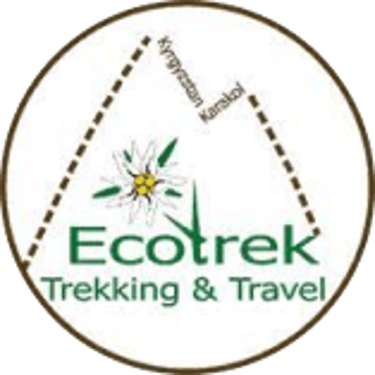Sustainability Policy of Ecotrek NGO
Learn about our sustainability policy: conscious environmental management, cooperation with partners, selection of eco-friendly transportation and accommodation options, as well as unique excursion programs aimed at nature conservation. Ecotrek NGO
1/1/20245 min read


We promote ecotourism while creating a client-oriented service through continuous training and professional development of trekking staff.
As one of the organizations in Kyrgyzstan engaged in and contributing to tourism activities in our country, we bear an inherent responsibility for the sustainable development of tourism.
We create a customer-focused service that meets the needs and expectations of both tourists and the local population. Sustainable tourism in Central Asia implies the possibility of establishing long-term conditions for the development of tourism itself, as well as the preservation of rich natural resources alongside the diverse social and cultural values of local communities.
Our ultimate goal is to achieve a higher standard of living for the local population by supporting their economic growth and preserving environmental assets and natural capital for future generations.
Our Goal and Sustainable Development Policy Focus On:
1. Purposeful Actions to Minimize Human Impact on the Environment
Actively reduce the use of disposable and consumer goods
Support the purchase of eco-friendly products and services, office supplies, catering services, and free promotional items
Purchase in bulk to reduce packaging waste
Set all copiers and printers to default to double-sided or paper-saving modes
Use cleaning products that are non-hazardous, non-eutrophic, biodegradable, and ecolabelled where locally available
Choose green energy and energy-efficient lighting where possible
Minimize printed advertising materials and shift towards digital, non-resource-based promotions
Turn off lights and equipment when not in use, use timers or motion sensors, and enable energy-saving modes by default
Prefer low-energy equipment when making new purchases, balancing cost and quality
Comply with national waste disposal regulations
Reduce packaging and avoid using non-recyclable or non-biodegradable materials
Reduce the use of single-use plastic bottles and disposable utensils in offices and tours
Separate all recyclable materials and ensure proper collection and disposal
Avoid harmful or hazardous products; prioritize eco-friendly alternatives
Use food items with sustainable (preferably reusable) packaging such as refillable bottles and paper/cardboard containers
Dispose of batteries responsibly
Use water-based, lead-free paints for interiors and exteriors, where available
Reduce transport impact by using remote work, tele/video meetings, and home office policies
Provide regular guidance, training, and/or information to employees on their environmental responsibilities
Respect land use, zoning, and heritage site regulations in planning, design, construction, renovation, operation, or demolition
Support and preserve local historic, archaeological, cultural, and spiritual sites and ensure local communities retain access to them
2. Conscious Management of Sustainable Development and Compliance with Legal Standards
A sustainability coordinator is appointed within our organization to oversee the development of sustainable tourism in all its forms
All plans and initiatives are developed and monitored by this coordinator
A sustainability mission statement is communicated to clients, partners, and suppliers
A written and accessible sustainability policy is in place to reduce the negative social, cultural, economic, and environmental impacts of our activities, including employee health and safety
We actively participate in external forums and working groups supporting tourism sustainability
We maintain a sustainability action plan with clear goals, measures, responsibilities, and timelines
We ensure transparency in sustainability efforts through public reporting and open communication
All employees are made fully aware of our sustainability policy and are encouraged to implement and improve it
Employees are free to enter or terminate employment contracts with reasonable notice (ideally one month) and without penalties
Employment terms comply with national labor laws and include a job description
Wages are stated in contracts and meet or exceed the legal minimum
Overtime is pre-agreed and compensated accordingly
Health and liability insurance is provided in line with national laws
Employees are entitled to fixed annual paid leave, sick leave, and unpaid leave
First-aid kits and trained personnel are available at appropriate locations
We comply with the national minimum employment age
Effective, documented procedures allow employees to raise concerns and expectations
A clear disciplinary process is in place and communicated to staff
We provide internship/apprenticeship opportunities for students
We support employment opportunities for people with special needs
3. Positive Collaboration with Partners
We maintain regular contact with partners, attend forums, and participate in training seminars to stay up-to-date on tourism trends, respond to innovations, and keep partners and clients informed
We prefer to work with organizations that genuinely incorporate sustainability in their tourism policies
We prioritize accommodations that benefit local communities and align with fair staff social policies
We raise sustainability awareness among key partners via (online) campaigns and training sessions
We inform partners about Travelife and national tourism sustainability standards
We regularly assess partners’ sustainability practices to ensure they are genuinely sustainable
We communicate our sustainability policy to key partners and encourage them to adopt or share it with their clients
Sustainability clauses are included in all contracts with incoming/outbound partners
We encourage participation of incoming partners in sustainable tourism training
We maintain written agreements with partner agencies
Contracts allow termination if partners fail to take appropriate action to prevent child sexual exploitation in the supply chain
Partner companies must comply with national labor protection laws
4. Selection and Use of Sustainable Transportation
We choose the most environmentally friendly transport options, balancing cost and comfort, including public transport to departure points for long-distance travel
We prioritize sustainable options when selecting transfer and excursion vehicles, based on price, comfort, and feasibility
We integrate and promote eco-friendly vacation packages that include sustainable transport, accommodation, and activities, based on recognized methodologies
5. Accommodation Selection
We select accommodations that meet sustainability and quality standards, focusing on:
Do they have a signed sustainability agreement?
Do they have water and energy-saving programs?
Do they have waste management systems and sustainable supply chains?
Do they have child protection policies and CSR programs?
Do they train staff on health and safety?
We prioritize locally owned and managed accommodations
We prefer accommodations that employ local communities
Accommodations are required to sign sustainability appendices
We clearly communicate our sustainability goals and requirements in contracts and agreements
We favor properties with internationally recognized certifications (e.g., GSTC, Travelife)
We include sustainability clauses in contracts focusing on child labor, corruption, waste, and biodiversity protection
We offer incentives to accommodations that actively promote sustainability
Child rights must be respected and protected throughout our supply chain
Contracts include zero-tolerance clauses for child sexual exploitation
The company reserves the right to terminate agreements with accommodations that fail to prevent such exploitation
We partner with accommodations and restaurants that feature local art, architecture, or cultural heritage, respecting local IP rights
We terminate cooperation with properties that endanger essential services (food, water, energy, healthcare, or land) for nearby communities
6. Sustainable excursion and activity programs
Availability of a list of excursions that take into account the ecological or cultural characteristics of each destination;
Advising guests on standards of conduct during excursions and activities, with an emphasis on respecting local culture, nature, and the environment;
Communicating our sustainability goals and requirements to contracted and other relevant excursion providers by disseminating this information through a code of conduct, representative agents, social media, email, discussions, and/or meetings in order to minimize negative impact on visitors and maximize enjoyment;
Not offering excursions that harm people, animals, plants, natural resources such as water and energy, or that are socially and culturally inappropriate;
Not offering any excursions involving wild animals in captivity, except for properly regulated activities in accordance with local, national, and international legislation;
Not being associated with companies involved in the extraction, consumption, exhibition, sale, or trade of wild animal and plant species, except in cases where such activity is regulated and ensures sustainable use in compliance with local, national, and international laws;
Providing qualified and/or certified guides to accompany our guests to culturally sensitive sites, heritage locations, or environmentally sensitive destinations;
Promoting and advising our guests on excursions and activities that directly involve and support local communities by purchasing services or goods, traditional crafts, and local (food) production methods, or by visiting social projects;
Promoting and advising our guests on excursions and activities that support the local environment and biodiversity, such as visiting protected areas or participating in environmental conservation projects.
